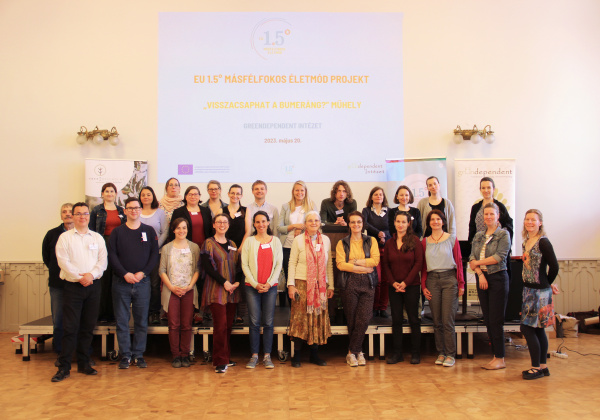
This was the question we addressed with participants at the Hungarian workshop, one of the five planned, about “rebound effects” of 1.5°-lifestyles. The topics and discussions covered four larger behaviour changes (give up car/flying/meat or living space).
The Hungarian workshop on 20 May 2023, organised by GreenDependent Institute, took place successfully and in a friendly, pleasant atmosphere in Budapest.
The term “rebound effect” refers to the unintended consequence of a low footprint or 1.5°-lifestyle change, resulting in a smaller overall carbon footprint reduction. For example, if, after insulating a house we set the heating so that the average temperature in our home is higher than it was before the renovation, the energy and money saved from insulation will be used up, i.e. will disappear. Or, if we don't turn the heating up, but we use the money saved to go on a holiday by plane, we increase our carbon footprint in a different lifestyle area. This is called the rebound or boomerang effect.
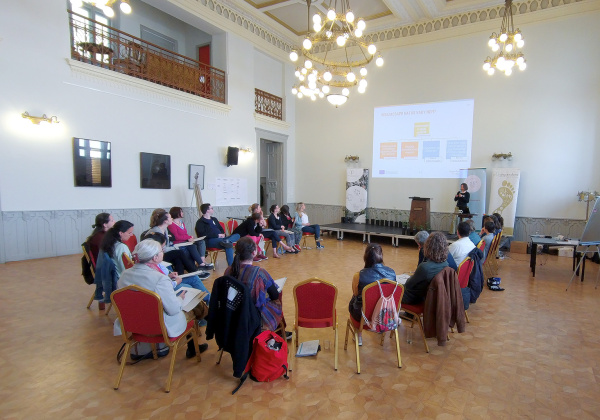
In the EU 1.5° Lifestyles project, during the workshops held last year with households and other stakeholders (decision-makers, companies, non-profit organisations, education and research institutions, etc.), we discussed the motivations (personal and structural), the barriers and the conditions to overcome and accept 1.5°-lifestyle changes. For the rebound workshop, we looked for and selected individuals who had already made significant changes in their lives and moved towards a low-carbon lifestyle, with a focus on the four areas mentioned above: switching to a meat-free, car-free or flight-free lifestyle, or moving to a smaller home. We are grateful to them for contributing their time and valuable insights to the project's work and mission on 20 May. By learning and understanding their experiences, we have gained a lot of valuable information not only at the project level, but also individually.
We studied what the rebound effects of lifestyle changes were, the factors that contributed to their reduction or prevention, and we also discussed what role other factors played in their efforts towards a 1.5°-lifestyle. A central objective of the research is to explore how to maintain a 1.5°-lifestyle over the long term. The Hungarian results will be compared and summarised with the developments and documentation of workshops held in four case countries of the project (Latvia, Germany, Spain, Sweden) by our Swedish project partner, the University of Lund.
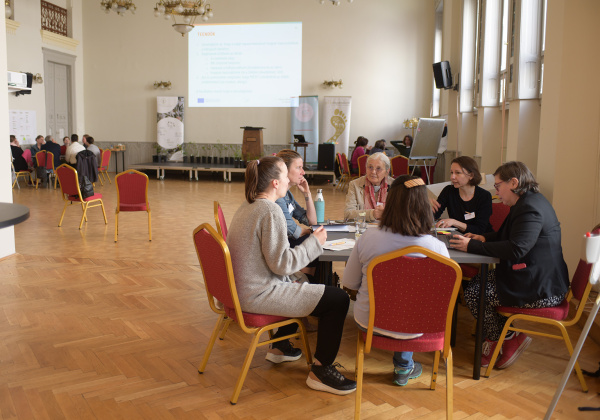
As part of the workshop, we prepared cause and effect diagrams in groups to illustrate the experiences of the participants and the correlations between their lifestyle changes. Participants were grouped according to four main lifestyle changes, based on the ones they had already made and experienced:
- giving up their own car or driving altogether
- no longer flying (for private purposes)
- living in a small(er) home (>30m2/person)
- being on a meat-free or completely plant-based diet.
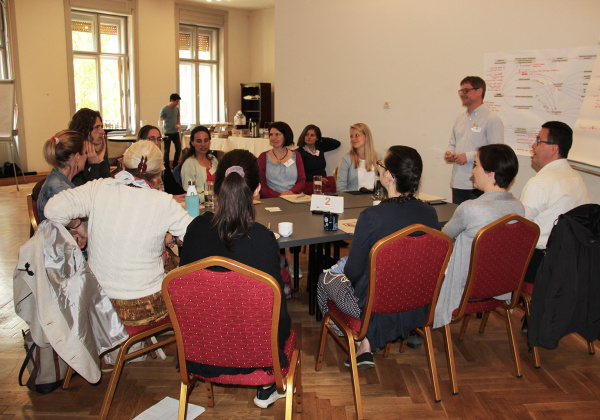
As usual at GreenDependent Institute's carbon-conscious events, the carbon footprint of the event will be calculated and compensated by planting indigenous fruit trees - as a first step, participants received a fruit tree sapling as a gift. Of course, we also made sure that the food and drinks we consumed had as little footprint as possible, with the help of FourBites, a responsible catering company. Meanwhile, a high percentage of participants used public transport to get to the venue, thereby reducing the footprint of the event.
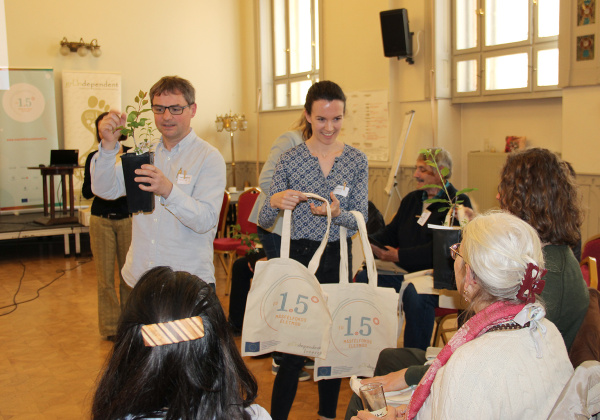
In the next phase of the research, we will analyse the lessons learned from the workshop and compare them with the results from the other four countries and the literature. Those interested in our findings, don’t forget to follow our work on our social media pages (Facebook, Twitter, Linkedin) or the website!
We created a short video about the day, watch it HERE!
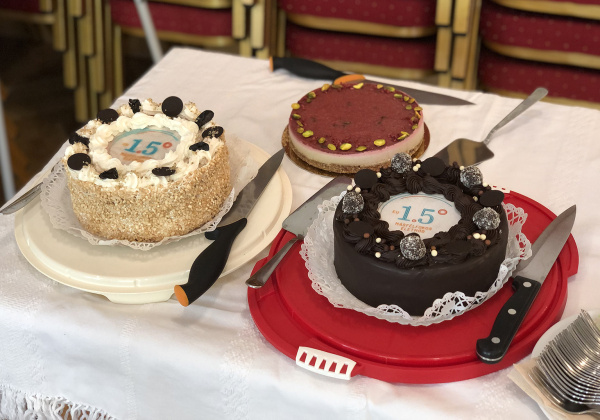
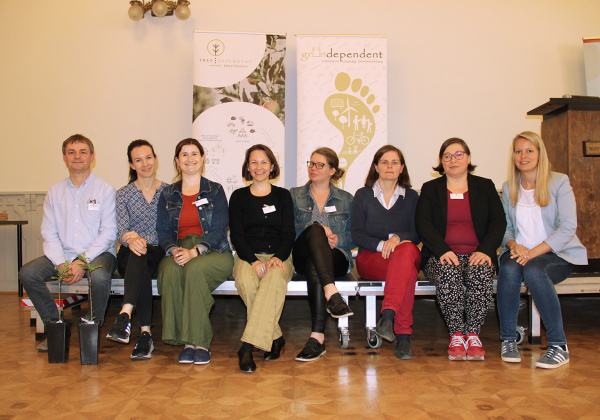
Eszter Csiki, GreenDependent Institute
Images: GreenDependent ©

